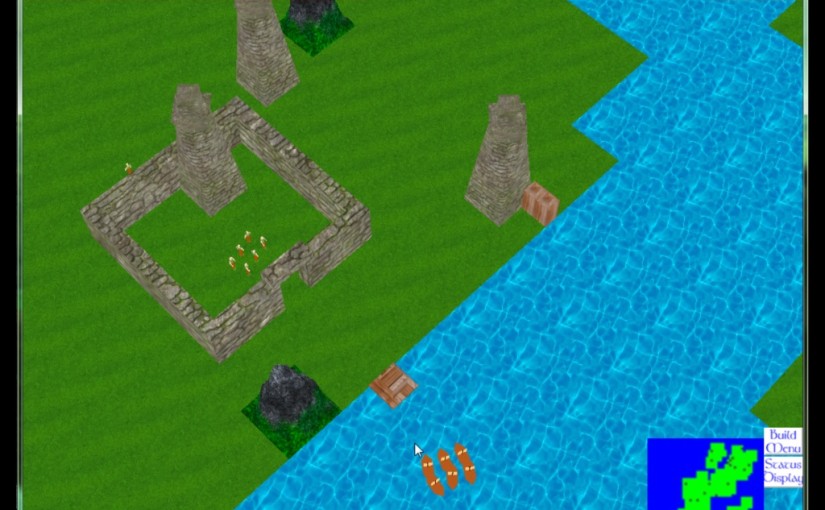About five years ago I almost made a video game. I say “almost” because I got bogged down in constant rewriting while searching for perfection so that project lost momentum and was never finished. Not to mention that I hardly knew anything, as this was the summer before I started college. A bit of digging in the history banks turned up the old Google site created for it. https://sites.google.com/site/intimidationgameproject/
I remember learning a lot during that project: Python, Panda3D, a ton of search algorithms, and a little linear algebra. All of that knowledge served me well as a springboard to further concepts. Just as importantly, it helped reinforce some concepts of software development I was taught later: the language doesn’t matter, results matter, and to focus on working software as the perfect code will never be reached, no matter the iteration count.
Having said all that, I have a different unit of measure for this project than perfect code. Don’t misunderstand me now, the better the code, the less long-term technical debt. So I won’t be making hasty calls of “I’ll fix that later” without good reason since new code builds upon existing code regardless of correctness. I just won’t be iterating as much without perceived value from doing so.
To keep me on track and progressing, I’ve committed to updating this blog once a week on average. Furthering backing any future claims of progress will be my https://github.com/DanielOliver where I will be publishing all source code under an MIT license.
I feel that I should mention that my new project’s name “Morgemil” and explain why I chose that. I have a story sketched up as an optional feature planned and that is the name of a central character. Another reason is that it is one of my preferred game account aliases (not much of an alias if I give it away). Perhaps a more practical reason, is that I already have http://morgemil.com which will just point to the github page for now as there is no media to show off yet.
Now back to the topic as defined by the title: The technical details. I will be writing the core game engine from scratch. I have not found a library that meets all my requirements satisfactorily. Re-inventing the wheel is often a bad decision, but I will be gaining some value here: I will know exactly what that code does and why, I will have more comprehensive test coverage, and I will learn more.
As for what languages and tools I will be using: the core game logic will be in F#, the graphics will be in C# with any of the game engines used purely for visuals, Visual Studio because it is amazing, and possibly the Mono Project for some Linux support. I do not know the testing framework yet, that is another thing I will need to research and learn about.
C++ is the traditional game development language purely for the reason that so much optimization is necessary to run in real-time. Morgemil will not have that problem, being a turn-based game (first hint). So I don’t believe that .NET will affect game performance. More important is developer time (my time) spent. My time is important to me, and the less time I spend optimizing every single memory allocation, the more time I get to spend making features that matter to the user.
There will be three separate pieces of software that will make the Morgemil system:
- The Single-player game.
- Rather obvious, the entire reason and end-goal of this project.
- The restful web service.
- This is an interesting bit. There will be the option to stay connected to this server to log and display player statistics, characters, and some other things I don’t want to spoil yet.
- There will be a system of checks to limit and hopefully disable cheating. I know that will be impossible to guarantee absolutely when the client is handling the computations but those who cheat should have abnormal data ratting them out.
- I do want to emphasize that this server will not be meant to enable a multi-player mode. I have not yet been able to reconcile the game mechanics with multiple players in the same game, and I’m not sure I can.
- The website.
- This is where various views of the logged data can be displayed: what characters perished on what level, player’s characters, hall of fame, etc.
- This is arguably my weakest point of knowledge and will certainly be a good thing to learn. But this will be developed last as it is not very useful without the two preceding pieces.
Catch me next time when I start coding and laying down more specifics!
